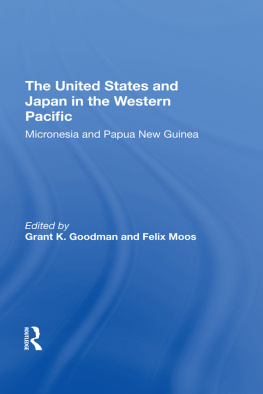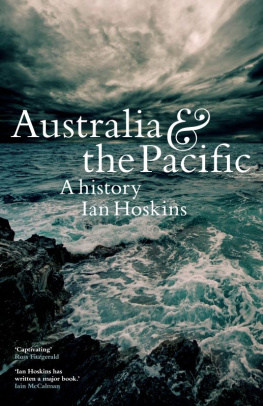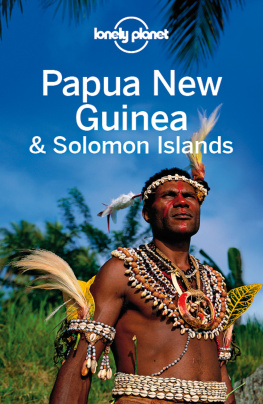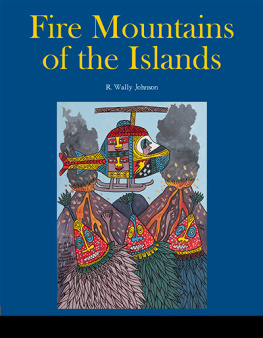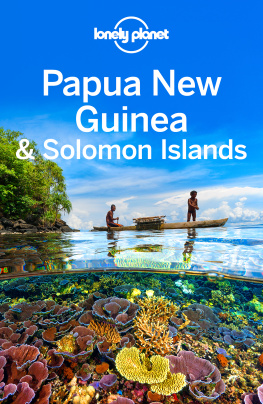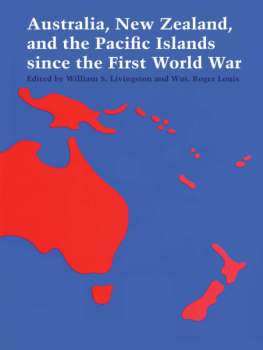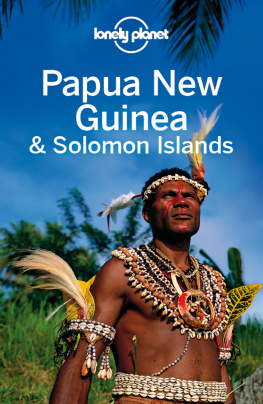University of California Press, one of the most distinguished university presses in the United States, enriches lives around the world by advancing scholarship in the humanities, social sciences, and natural sciences. Its activities are supported by the UC Press Foundation and by philanthropic contributions from individuals and institutions. For more information, visit www.ucpress.edu.
University of California Press, Ltd.
London, England
Gewertz, Deborah B., 1948.
Cheap meat : flap food nations in the pacific islands / Deborah
Gewertz and Frederick Errington.
p. cm.
Includes bibliographical references and index.
ISBN 9780-520260924 (cloth : alk. paper)
ISBN 9780-520260931 (pbk. : alk. paper)
1. Nutritional anthropologyPacific Islands. 2. Lamb meat industryPacific Islands. 3. Mutton industryPacific Islands. 4. Animal gut industriesPacific Islands. 5. Food habitsPacific Islands. 6. Pacific IslandsForeign economic relationsAustralia. 7. Pacific IslandsForeign economic relationsNew Zealand. I. Errington, Frederick Karl. II. Title.
This book is printed on Cascades Enviro 100, a 100% post consumer waste, recycled, de-inked fiber. FSC recycled certified and processed chlorine free. It is acid free, Ecologo certified, and manufactured by BioGas energy.
Acknowledgments
Thanking people for helping us with a multisited project involving a controversial topic is tricky. We spoke to many people in New Zealand, Australia, Papua New Guinea, and Fiji. And, if complete, the list might include some who would not wish to be mentioned. What to do? We have decided to limit the list to those who provided us with sociability as well as succor during our researchand to those we are relatively sure would not mind being acknowledged. We hope we do not offend in either direction of mentioning or not mentioning. In regard to all, we want to emphasize how much we learned. We have tried to listen carefully, and we have tried to write fairly. We do, of course, take full responsibility for what we have written.
We send our special gratitude to: Karen Brison, Mark Busse, Fiona Carruthers, Sneh Chand, Ann Chowning, Don Claasen, Ken Cokanasiga, Bob DeBour were, Graeme Cook, Jope Davetanivalu, David Ellis, Ross Finlayson, Andy Fox, Hamish and Stratton Giblin, Claudia Gross, Tim Harrison, Philip Harvey, Trevor Hattersley, Judith Huntsman, Joseph Kambukwat, Alfred Kerenga, Richard Kidd, David Kitchener, Philip Komai, Andrew Macpherson, Dennis McClenaghan, Ann and Fergus McLean, Peter Manueli, Gray Mathias, Ben OBrien, Susan Parkinson, Mike Petersen, Chris Ritchie, Wila Saweri, Jimaima Schultz, Simon Sia, Rod Slater, Nancy Sullivan, Sidney and Sharifa Suma, Kerry Tate, Janet Tyson, Brian and Leanne Umbers, John Upton, and Mark Warren.
In addition, we would also like to recognize those who helped us gain institutional affiliation. In New Zealand, we thank Dr. Crispin Shore of the Department of Social Anthropology at the University of Auckland, who appointed us as Visiting Scholars.
In Papua New Guinea, we thank Dr. Peter Siba of the Papua New Guinea Medical Research Institute, who affiliated us and made us welcome. In Fiji, we thank Dr. Elise Huffer of the Pacific Studies Program of the University of the South Pacific. She recommended us to colleagues in the Ministries of Health and Education who vetted and approved our proposal.
Also, there are those who commented on aspects of our manuscript or helped us in its preparation in other ways. In addition to those mentioned in the book and those who provided anonymous reviews, we send our appreciation to Andy Anderson, George Armelagos, Alan Babb, Niko Besnier, Melissa Caldwell, James Carrier, Don Claasen, David Ellis, Robert Foster, Elizabeth Garland, Alan Goodman, Tim Harrison, Donna Hart, Surya Kundu, Peter Manueli, Ann McLeanand especially to Ella Kusnetz. We also benefited from discussion after we presented talks based on our research at the cole des Hautes tudes en Sciences Sociales, Johannes Gutenberg Institute, the University of Otago, the annual meetings of the Association for Social Anthropology in Oceania, and Amherst College.
Our research was financed by the National Science Foundation, grants 051322221 and 0512994; the American Council of Learned Societies; and the H. Axel Schupf 57 Fund for Intellectual Life Amherst College. We are very grateful for the support.
Finally, as always, we thank our luck for the opening of an elevator door.
INTRODUCTION Whats Not on Our Plates
Our story is about a fatty, cheap meat eaten by peoples in the Pacific Islands, who are among the most overweight in the world. Lamb or mutton flapssheep belliesare often 50 percent fat. They move from First World pastures and pens in New Zealand and Australia, where white people rarely eat them, to Third World pots and plates in the Pacific Islands, where brown people frequently eat themand in large amounts. As fatty and cheap meat, they are a kind of food implicated in the global epidemic of eating-related lifestyle diseases: obesity, diabetes, and hypertension. Many also implicate them in structures of inequality. The sale of lamb and mutton flaps to seemingly remote Pacific Islanders, we argue, involves political, ethical, and health issues of importance to us all.
In effect, our story about lamb and mutton flaps is both similar to and different from other accounts about food that have been told recently.These tend to be of an if you only knew genre in their focus on how those in the First World are often ignorant ofindeed, often misled if not duped bythe corporate and industrial food system. In one variant, these accounts reveal that the foods we enjoy lack innocence by virtue of the circumstances of their production; in another, by virtue of their ingredients and environmental effects. Bothand they are often combinedare intended to provoke disquietude about injustice or ill-health (both personal and environmental) that might cause us to change our food choices or to protest in other ways.
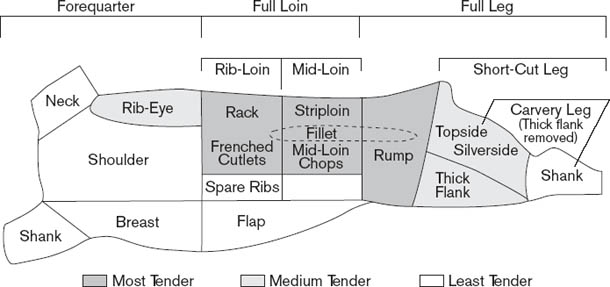
Figure 1. Lamb cuts
The first variant, that revealing injustice, shows that the foods on our plates are often obtained at the expense of the foods not on other peoples plates. Examples of this concern the tomatoes, green beans, broccoli, papayas, pineapples, and coffee produced for export by disadvantaged farmers and farm workers living in Mexico, Zambia, Guatemala, Jamaica, Mexico, the Philippines, and Papua New Guinea.
It also relies on environmentally dubious practices formulated to maximize yield with the help of pesticides, herbicides, fertilizers, hormones, and antibiotics. Pollan and others provide sobering discussions of the physiological and environmental effects of transnational food corporations in their hunger for profit. In demonstrating the exploitation of our health and our environment, they too shake up our complacency.
There are, of course, Pacific Island examples that could lend themselves to the if you only knew renditions of both variants. Many of these are known not only to us, but also to a range of activists and health professionals, both from the Pacific Islands and elsewhere, who have written about the deplorable conditions under which many Pacific Islanders labor to produce foods for export to First World countries and the adverse environmental effects of this industry. An especially egregious case is that of RD Tuna in Papua New Guinea, which, under the guise of providing much-needed development, pays workers badly, strips the local seas clean of tuna and other fish, and dumps factory effluent. which contain wheat flour, vegetable oil, salt, wheat gluten, mineral salts, vegetable gum, and artificial colors; the flavor mix that accompanies them is extremely salty and contains artificial flavor enhancers (specifically, monosodium glutamate and disodium 5 ribonucleotide), anticaking agents (specifically, sodium aluminum silicate and calcium phosphates), hydrolysed plant protein, maltodextrin, onion powder, vegetable fats, parsley flakes, and flavor extracts.


